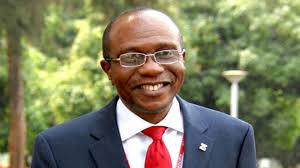The plan by the Central Bank of Nigeria, CBN, to add more items to those already prevented from accessing foreign exchange for importation into the country as recently hinted by Godwin Emefiele, the CBN governor, is an indication that the policy appears to be yielding expected result.
At the moment, there are 42 items that importers cannot get forex from the interbank market, but can source for forex at the parallel market. The list initially had 41 items on it, but the inclusion of fertiliser to the log last month made it 42.
During an inspection of the Dangote Refinery, Petrochemicals and Fertiliser projects in Lagos recently, Emefiele said about eight new items would be added to the restriction list to make it 50 in total.
He said for Nigeria to grow and to encourage more investors like Aliko Dangote to invest in the country, efforts must be made to ensure things that can be locally produced are not imported into the nation.
“We are looking at increasing the items not eligible for forex to 50. We are ready to support in Naira and also ready to provide foreign exchange for any investor who is ready to support Nigeria’s transformational agenda,” Emefelie said.
In October, the CBN governor, had while declaring open the 26th Seminar of Financial Correspondents and Business Editors, in Lokoja, Kogi State, said the policy had opened opportunities for local manufacturers.
Speaking on ‘”Monetary Policy Implementation Amidst Global Economic Protectionism,” the CBN governor said the selective protection policy on forex restriction to some imports was carefully crafted with a view to reversing the multiple challenges of dwindling foreign reserves, contracting GDP-recession and what he described as an embarrassing rise in the level of unemployment that confronted the Nigerian economy at the time.
Expectedly, the position of the CBN has provoked debate, with some Nigerians sharing the views of the apex bank and others feeling otherwise.
Uche Uwaleke, head, department of Banking and Finance, Nasarawa State University, agreed with the CBN. For him, there is no doubt that the CBN’s forex policies have helped the growth of local industries in Nigeria, especially the restrictions to access official forex placed on 41 imported items.
He said the measure was not only in support of the federal government’s import substitution strategy, it was also a demand- management strategy which helped to conserve scarce forex especially during the period of oil price slump.
“Today, thanks to that restrictive measure, a number of products which were hitherto not produced here such as toothpicks are now being manufactured locally,” he said.
According to Uwaleke, the introduction of the investors and exporters’ window, on the back of crude oil price recovery, has equally helped stabilise the exchange rate facilitating raw materials imports for local firms.
He, however, cautioned that the CBN should continue to explore innovative ways to support domestic industries beyond the use of forex policies.
Teslim Shitta-Bey, an economist and banker, has a contrary view. Shitta-Bey is vehemently opposed to restriction as, according to him, it is undue monetary interference in micromanaging the exchange rate.
In a telephone interview with Realnews, Shitta-Bey said: “I am viscerally opposed to restrictions generally. In this instance I equally think it is undue monetary interference in micromanaging the exchange rate.
“I think it will lead to exchange rate distortions by artificially strengthening the naira.
“The alleged purpose of the policy to encourage domestic producers of the imported products is dubious. The local producers cannot be competitive because of the deplorable power situation, looming larger cost of labour and infrastructure deficit that translates into higher cost of distribution.”
Muda Yusuf, the director general, Lagos Chamber of Commerce and Industry is not against the idea to add more items to the forex restriction list, but cautioned that proper study has to be carried out by the CBN before the exercised is carried out.
This, he said, is to avoid causing more problems while trying solve one problem.
“They should conduct proper study before proceeding so that they don’t create more problems while trying to tackle one,” he noted.
“While doing that they have to take everything into consideration. The first one they did threw some companies into difficulties that they are yet to recover from.”


